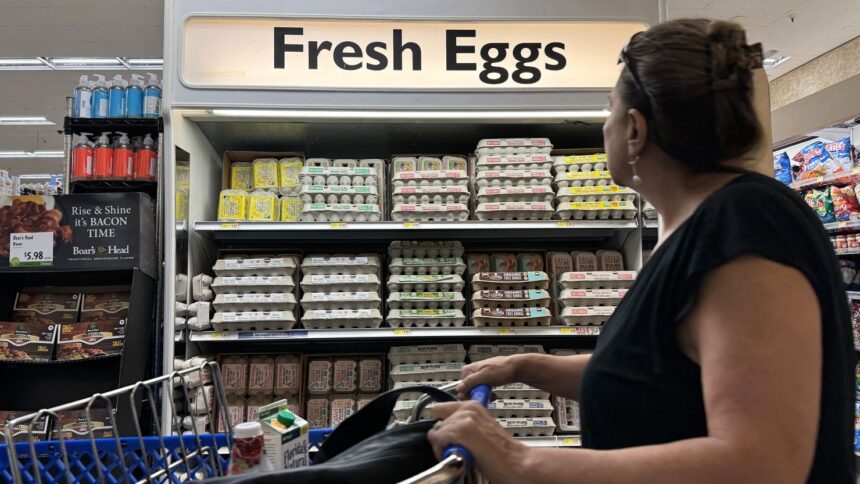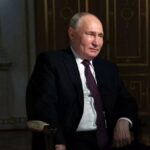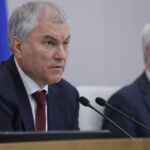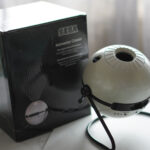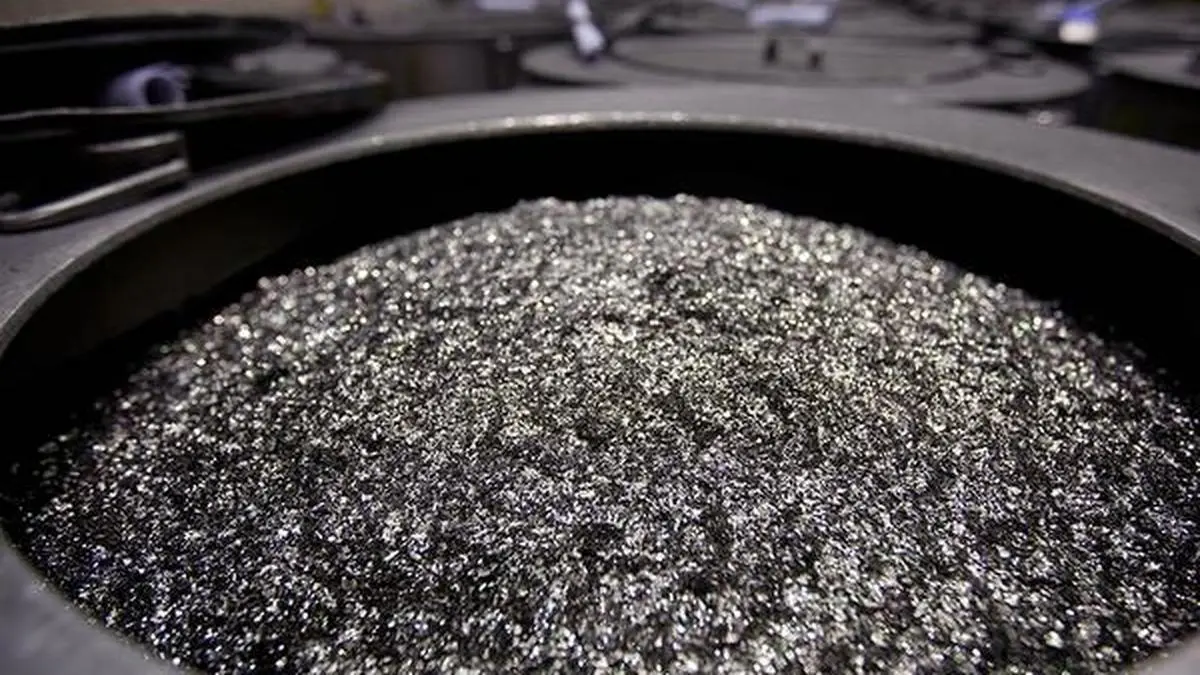Some Moscow residents claim egg prices have doubled, as Russia continues to battle persistent inflation and Western sanctions.
Surging egg prices, against a backdrop of high inflation and economic sanctions, are worrying the Russian authorities, especially as eggs are a symbolic and central ingredient of the festive season.
The Kremlin has insisted for months that Russia is valiantly resisting the swathes of retaliatory measures imposed on the country since it launched its full-scale invasion of Ukraine in February 2022, pointing to growth that jumped to 5.5% in the third quarter, compared to -3.5% at the same time in 2022.
As the presidential election in March 2024 approaches, which is expected to extend Vladimir Putin’s mandate once again, the authorities are even more determined to convey an optimistic message.
The price of eggs has become a particularly telling example that has agitated the media and internet users in a country where public debate has largely been eliminated against a backdrop of repression.
Government hatches export ban plan
In November, the average price of eggs in Russia rose by 40.29% year-on-year, according to the Russian Federal State Statistics Service (Rosstat).
Muscovite consumers report even steeper rises.
“Before, I used to buy eggs for 70 roubles a dozen. Now they cost between 130 and 140 roubles – twice as much,” Ilia Zaroubine, a 21-year-old student, told AFP.
“I’m shocked! (…) It’s horrible what’s happening with the prices. Not just for eggs, but for all products”, echoed Elizaveta Chalaïevskaïa, a 76-year-old pensioner in the streets of Moscow.
In response, the Federal Service for Veterinary and Phytosanitary Supervision (Rosselkhoznadzor) on Friday authorised the import of eggs from Turkey, and the Russian Ministry of Agriculture is proposing a six-month ban on egg exports.
Last week, Prosecutor General Igor Krasnov ordered prosecutors to launch regional checks on producers and sales outlets for any unjustified price rises.
Inflation in egg prices also led to some unusual scenes on Saturday, with crowds queuing up for eggs at an agricultural fair in the Belgorod region because prices were much lower than in supermarkets, according to videos that have gone viral on social media.
Festivities under threat
The fear of shortages harkens back to the Soviet era when queues and tricks to buy basic foodstuffs became an everyday challenge.
According to experts quoted by Russian media, the rise in egg prices is due to the increase in the cost of poultry feed and veterinary products, an indirect consequence of Western sanctions, which have led to a rise in the price of imported products.
According to Rosstat, the price of chicken rose by 29.26% in November 2023 compared with the same month the previous year.
Russian families are closely monitoring the price of eggs in December, as eggs and mayonnaise are central ingredients in end-of-year festive meals, particularly the Olivier salad, a Russian New Year’s Eve staple.
“Whatever it takes, I’m going to make myself an Olivier salad for New Year’s Eve, even if the products have become more expensive”, Elena, 60, administrator at a psychological assistance service in Moscow, told AFP.
“But it’s sad and it’s a shame that [the eggs] have gone up like that,” she said.



